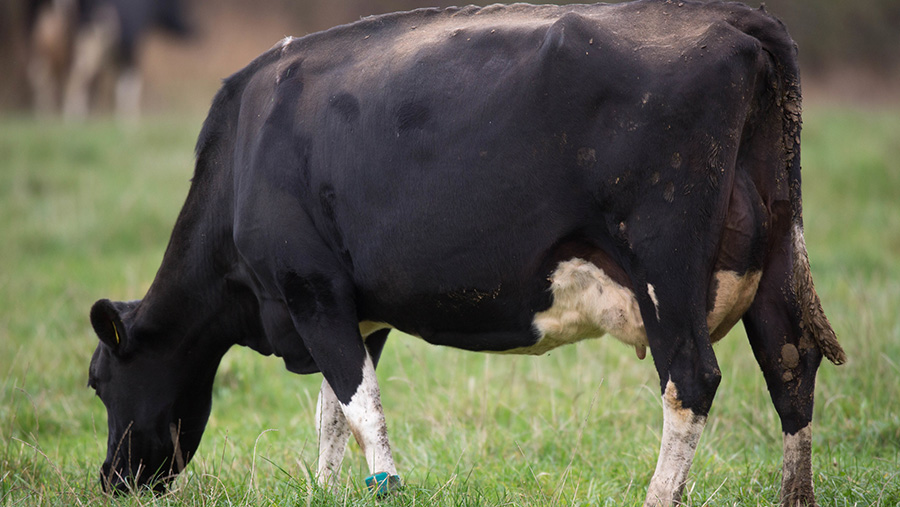Dairy farmers losing cash through worming weighing errors
 © Tim Scrivener
© Tim Scrivener Four out of five times farmers underestimate the weight of Holstein-Friesian dairy cows when using anthelmintics to treat worms, a study has found.
Researchers at the University of Liverpool said the average underestimation was 97kg, up to a maximum of 233kg – the equivalent of 28% of bodyweight.
Worse yet, the study showed that vets were not much better at estimating cow weights.
Getting the animal’s weight wrong will result in under or overdosing, which means not all worms will be killed and those that are left are more likely to develop resistance, explained Derek Armstrong, AHDB Dairy endemic diseases programme manager.
See also: Tailor fluke treatment for dairy cows
“Overdosing is a waste of expensive product and could be toxic.
“Getting the correct dose into the right animal at the right time, can give a greater return with better growth rates and higher milk yields,” he added.
“Overdosing is a waste of expensive product and could be toxic”
Derek Armstrong, AHDB Dairy
Mr Armstrong said under and overdosing can be avoided by weighing some, or all, of the animals or by using a weigh band.
In the short-term, Mr Armstrong said getting anthelmintic use right saves money.
“Bearing in mind the cost of a single wormer and fluke treatment for an average Great British herd of 151 cows can be in excess of £1,200 the numbers are not insignificant.
“An avermectin pour-on dose for a 600kg cow costs about £6 and a dose for fluke about £2.50.
“However, costs of untreated fluke or worms can be several times higher.”
If you are not sure, Mr Armstrong advises farmers to ask their vet or suitable qualified person for advice about which animals will benefit most from treatment and which products will give the best returns on your farm.
